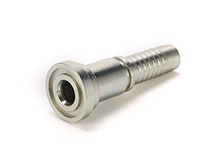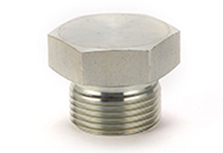Have you ever felt overwhelmed by all of the options for hydraulic hose fittings ? The information below will help you to
Finding the right hydraulic fitting is simply a matter of coming up with a component that has the right length, diameter, thread gauge, and angle.
Identifying the Tools Needed and Thread Type
Tools:
- · ID/OD calipers
- · Thread pitch gauge – used to place the gauge teeth on the threads, until you see that there’s a tight fit.
Make sure there is no gap between the fitting and the gauge teeth. If your fitting is somewhat worn, it might be difficult to obtain a match, so you’re better off to work with newer fittings. Most manufacturers of fittings provide thread identification guides on their websites or in brochures that come with the products, so all you have to do is match the relevant charts to the actual thread measurement.
- · Measuring the Outer Diameter of the thread – place the ID/OD caliper around the threads so as to obtain a snug fit.
- · Measuring the Inner Diameter of the thread – insert the caliper into the fitting so you can obtain the correct measurement, and match it to the data charts provided by the manufacturer.
- · Determine if yours is parallel or tapered.
HOW TO MEASURE YOUR HYDRAULIC FITTING
- 1.First you should determine the length of a hydraulic fitting by laying it on a table and then stretching your measuring tape across the top of it.
- 2.Next, determine the outside diameter of the fitting by using your ID/OD calipers.
- 3.Place the calipers on the outer side of the fitting and then slowly open the jaws so that the fitting rests securely between them.
- 4.Once it is securely inside the jaws, close down the calipers so that both jaws touch the exterior of the fitting.
- 5.The number you see on the top scale will be the correct reading for the outside diameter.
A lot of options exist in the industry – QC Hydraulics goal is to give you a very basic guide to definitions of types of fittings and some of the best practices to select the best fitting for your applications.













